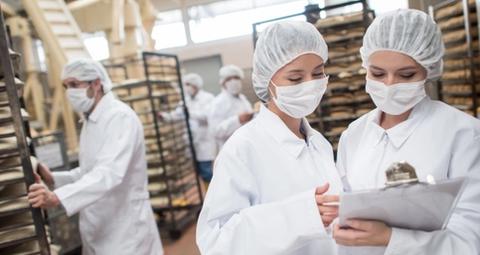Compliance: The Key to Successful Sales
For any business to sell its products in a specific country, it must meet that country’s regulatory requirements—even if it has no manufacturing facilities or retail presence there. Pest control plays a significant role in food safety regulations and commercial standards, as pests pose contamination risks that can endanger consumer health.
This page outlines the essential food safety certifications required across various countries, along with information specific to regulations in Country X. You’ll also find a helpful link to view regulatory requirements by country.
Please note: This overview may not cover all regulations. Always verify with the appropriate local authorities to ensure compliance with all relevant standards for your specific location.
International food safety regulations and commercial standards
Codex Alimentarius HACCP
The Codex Alimentarius, developed by the FAO and WHO, is a globally recognized collection of standards, guidelines, and codes of practice. Established in 1963, it aims to protect consumer health and promote fair practices in the global food trade.
The Codex HACCP (Hazard Analysis Critical Control Point) system is a framework designed to prevent food safety risks. Food producers must identify potential hazards and establish preventive measures to control them. Regulatory agencies conduct regular inspections of food facilities to ensure that businesses adhere to safe and hygienic food processing practices.
AIB: Consolidated Standards for Inspection and Food Safety Programs
AIB (American Institute of Baking) sets globally recognized standards for inspections through its Consolidated Standards for Inspection Prerequisite & Food Safety Programs. These standards outline essential requirements facilities must meet to ensure their products are safe and wholesome. They also serve as a guiding framework for Good Manufacturing Practices (GMP) inspections.
The AIB standards highlight the significance of a robust Integrated Pest Management (IPM) program and comprehensive in-house training for employees. Dedicated exclusively to the food industry, AIB provides expert auditors, tailored training programs, and food safety consultancy to help businesses maintain the highest standards of food safety.
ISO 14006
ISO 14006 provides essential guidelines to help organizations integrate ecodesign into their environmental management systems (EMS). It supports the establishment, documentation, implementation, maintenance, and continuous improvement of ecodesign practices, ensuring a sustainable approach to product development and environmental stewardship.
IFS Food 8
The IFS Food Standard evaluates both products and production processes to ensure a food producer's capability to deliver safe, authentic, and high-quality products that meet legal requirements and customer expectations.
Audits are conducted by qualified IFS Auditors from independent, accredited certification bodies.
Additionally, IFS Standards undergo regular assessments by governmental or private organizations to maintain their credibility and reliability.
FCA standard
The Food Contact Additives (FCA) standard works in collaboration with other members of the value chain to promote the safe use of food contact materials.
This standard is designed for producers and traders involved in compound feeds, feed materials, premixes, and additives. It also extends to transport, storage, and handling processes, ensuring safety and compliance throughout the supply chain.
Where to Access Food Safety Regulations and Standards by Country?
FAOLEX, developed by the FAO, is a comprehensive database featuring national legislation, policies, and bilateral agreements related to food, agriculture, and natural resource management. Regularly updated, it hosts legal and policy documents from over 200 countries, territories, and regional economic integration organizations, available in more than 40 languages.
Your Trusted Pest Control Partner
Quality and plant managers in the food industry face immense pressure to protect perishable foods from infestations. With markets demanding near-zero tolerance for pest damage and external inspections becoming more rigorous, the challenges are ever-increasing.
The push for pesticide-free, unadulterated food alongside reduced reliance on residual pesticides adds another layer of complexity. Managing pests in large, intricate food facilities with multiple vulnerable points is no small feat.
Anticimex brings the expertise, regulatory knowledge, and cutting-edge pest control solutions needed to meet these challenges head-on. With our support, you can confidently pass audits and focus on what matters most—running your business.
What are the latest pest control innovations for the food industry?
In the past decade, pest control has rapidly advanced, driven by digitalization, the Internet of Things (IoT), and significant R&D investments.
As businesses prioritize sustainability—not just as a marketing tool but as a core value—economic growth and environmental impact must align.
At Anticimex, we share this vision. That’s why we continuously develop innovative pest control methods that minimize biocide use while maintaining effectiveness.
